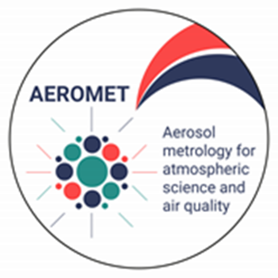
Measurements of aerosol particles are vital for enforcing EU air quality regulations to protect human health, and for research on climate change effects. Although metrics such as the mass concentration of airborne particulate matter (PM) including PM10 (inhalable particles with diameters of 10 micrometres and smaller) and PM2.5 (fine inhalable particles, with diameters of 2.5 micrometres and smaller) are currently in use the level of uncertainty is too high and the traceability is insufficient.
Therefore this project aims to improve the uncertainty of particle mass, size and number concentration measurements and the characterisation of regulated components in airborne particles as needed by EU air quality monitoring networks.
Regulatory bodies, air quality networks and atmospheric instrument manufacturers all require the improvement of air quality monitoring, however there is currently a lack of traceable calibration standards and harmonised calibration procedures for measuring airborne PM. In addition, methods measuring PM10 and PM2.5 (particle mass concentration) within the EU Air Quality Directive 2008/50/EC need improving in order to ensure the comparability of local data measured by instruments relying on different working principles (e.g. gravimetric vs. optical measurements). Therefore, reference methods for measuring PM10 and PM2.5 and calibration methods for the instruments used for such measurement are needed.
